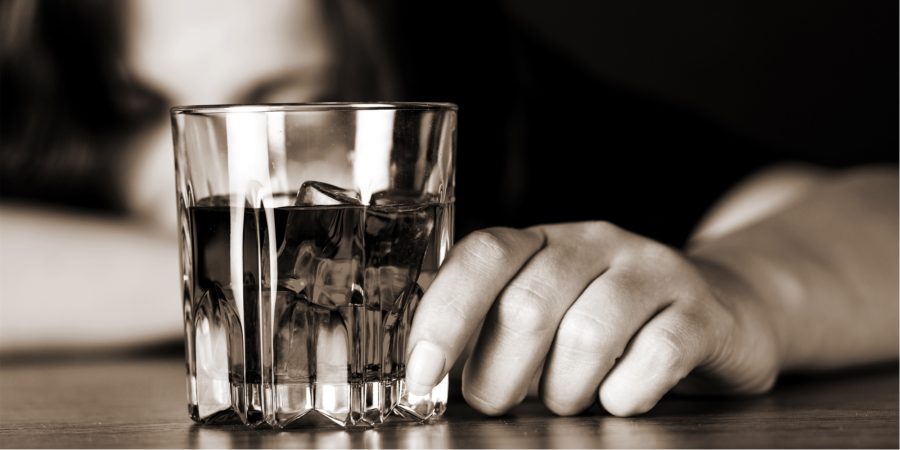
Enjoying alcohol is a popular activity among adults, which can make answering the question, “Am I an alcoholic?” difficult. According to the National Institute on Alcohol Abuse and Alcoholism, 86.3 percent of people ages 18 or older reported that they drank alcohol at some point in their lifetime. Over half of people reported that they have enjoyed at least one alcoholic beverage in the last month.
Because it’s such a common recreational activity, and it’s legal, it can be difficult to tell if you have developed a drinking problem or not.
It’s helpful to understand exactly what alcoholism is, how it affects your body, and signs that you could have an alcohol addiction before considering the best way to get help if you decide it’s time to stop drinking.
Table of Contents
What Is Alcoholism?

Alcoholism can be a surprisingly difficult concept to understand because you can drink without being considered an alcoholic. Even binge drinking, although unhealthy and dangerous, doesn’t automatically qualify you as an alcoholic.
Alcoholism, which is also referred to as alcohol use disorder, requires a physical need to consume alcohol, even though it has a negative effect on your life. It is accompanied by cravings to drink, including cravings to drink relatively small quantities of alcohol. Those who are addicted drink regularly, often on a daily basis, and will make sure they can maintain their rituals, even if it isn’t convenient or healthy.
Understanding what alcohol does to your body and the health problems that can develop can also help you understand alcohol abuse as a separate issue from binge drinking and heavy drinking. For example:
- It can shrink your brain, making it harder to think, learn, and remember things.
- Years of heavy drinking can create ulcers in your stomach.
- You can develop liver disease or cirrhosis by consuming alcohol regularly.
- Your body can stop making the insulin it needs, which can lead to diabetes.
- Your heart muscles can droop and stretch, making it difficult to pump blood.
- It can weaken your immune system, causing you to get sick more often.
- It can decrease calcium levels in your body, making your bones more fragile.
Even moderate alcohol use disorders can be accompanied by various physical and mental health issues and will negatively affect the relationships you have with loved ones.
Risk Factors for Developing Alcoholism
Anyone can develop alcohol problems, but there are some risk factors that make it more likely for you to develop an addiction.
Genes can affect whether or not you develop substance use disorders, including alcoholism, especially if you have one or more family members who have the condition. In addition, those who metabolize alcohol more easily, and therefore need more of it in order to feel a buzz, are more likely to develop alcoholism.
Stress can cause you to drink more than you usually might, as can low self-esteem and depression. The longer these mental health issues affect your life without being addressed, the more likely you are to develop alcoholism.
Sometimes it’s just a matter of access. It’s much easier to become an alcoholic if you have easy access to alcohol, if you were able to consume your first drink at a very young age, or if you have friends you hang out with who drink regularly.
Signs That You Could Be an Alcoholic

If you see yourself and some of your habits in this article so far, it’s time to take a deeper dive into the sings that you could have an alcohol problem. As mentioned above, the amount of alcohol consumed in one sitting isn’t a sure-fire way to answer, “Am I an alcoholic?”
Instead, you’ll want to consider if you:
- Aren’t able to limit how much alcohol you consume, or you feel a compulsion to drink every day.
- Drink alone or in secret because you don’t want people to know about your drinking habits.
- Have relationships that are suffering due to your habit.
- Need more and more alcohol to feel its effects.
- Experience nausea, sweating, or shaking when you haven’t had a drink.
Alcohol abuse and alcoholism are complex problems that aren’t always obvious when they first start having a negative effect on your life. However, as soon as your consumption of alcohol takes precedence over other areas of your life that used to be important, including work, family, and friends, it’s a good sign you have a substance abuse issue with alcohol.
What to Do if You Think You Have a Problem
If you still aren’t entirely sure if you have a problem or not, but something doesn’t seem right, or you’re starting to feel ashamed of your drinking habits, it’s still a good idea to look into addiction treatment.
An addition recovery center is one of the best ways to get the help you need, no matter how severe or minor you think your drinking problem is. That’s because a quality rehab center offers a variety of programs and services that can be catered to your unique experiences and challenges.
For example, if you have a serious problem, alcohol withdrawal can be managed with a detox program. Withdrawal symptoms are managed by skilled nurses who provide care 24 hours a day for up to 10 days to ensure you remain healthy throughout the process.
Residential programs are a great choice for those who need a structured environment. Skilled recovery centers, like The Woods at Parkside, also offer a dual diagnosis program that can address your addiction in tandem with mental health disorders that may have contributed to or come about as a result of your addiction.
If maintaining your regular schedule is important, and your addiction is relatively manageable, an intensive outpatient program may be an option. It includes onsite therapy sessions a few hours at a time, just a few days a week, enabling you to continue to uphold your normal work and family obligations while getting help.
If you’re spending a lot of time asking yourself, “Am I an alcoholic?” give The Woods at Parkside a call at 1-614-881-4823. You can also fill out our online form at your convenience. All conversations are confidential, so you can get the answers you need to determine if one of our addiction treatment programs is right for you.
The post Am I an Alcoholic—How to Know and What to Do About It appeared first on The Woods At Parkside.
Source
Original Author: The Woods at Parkside

